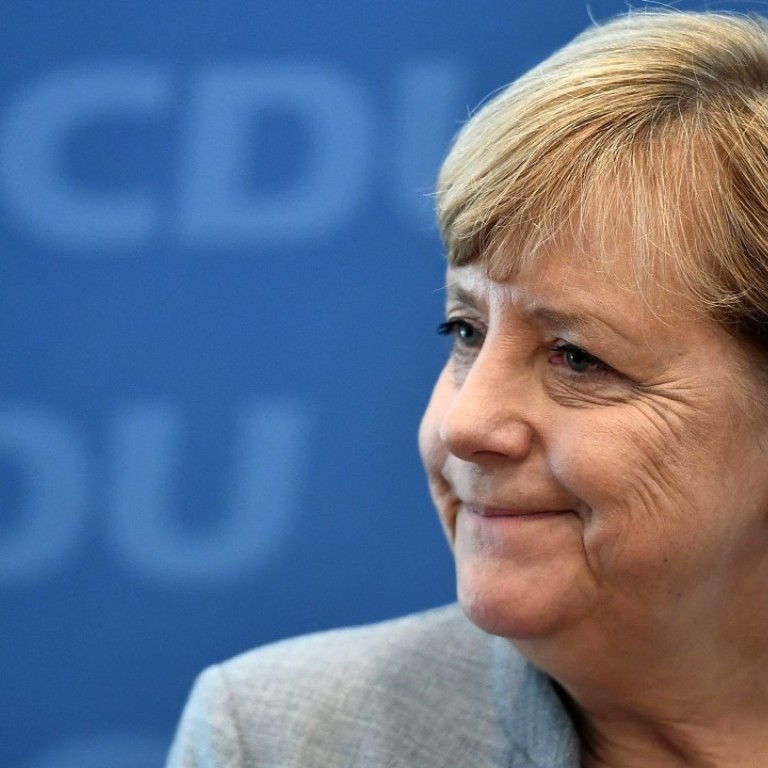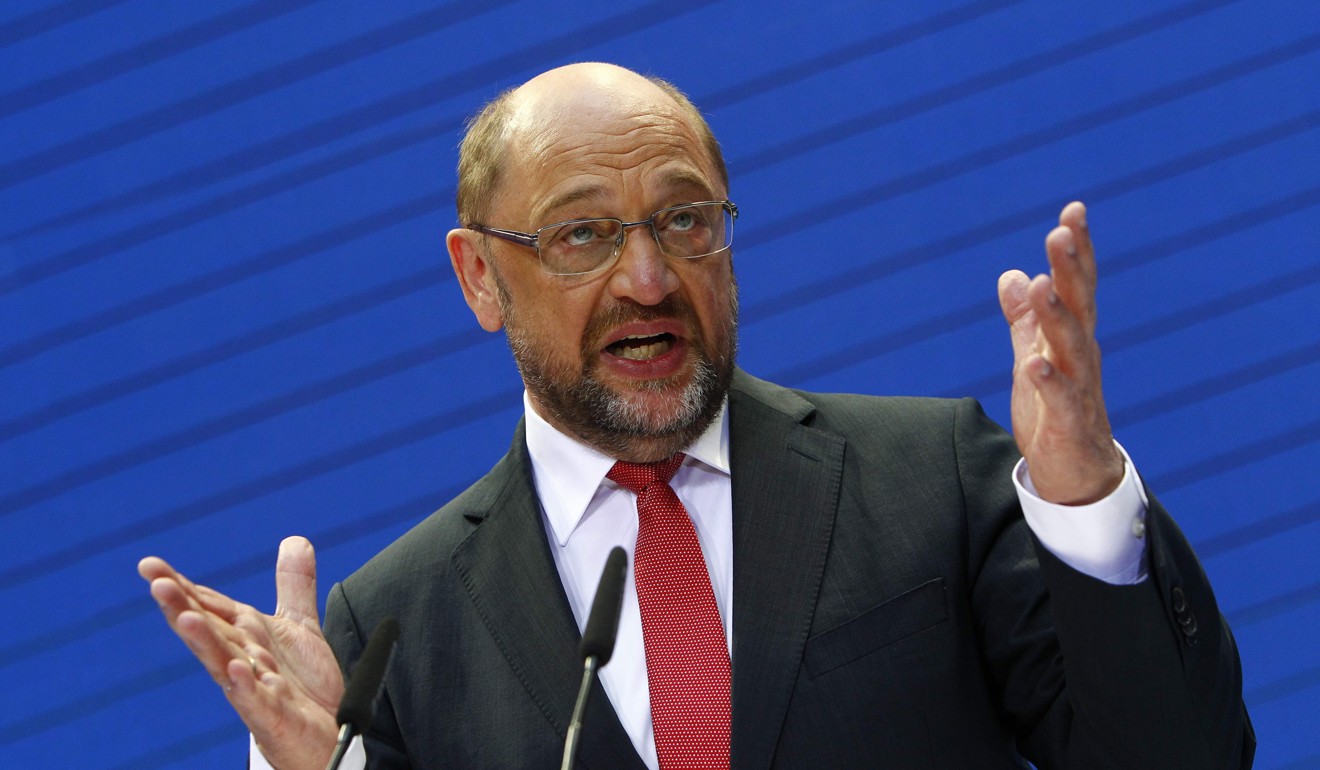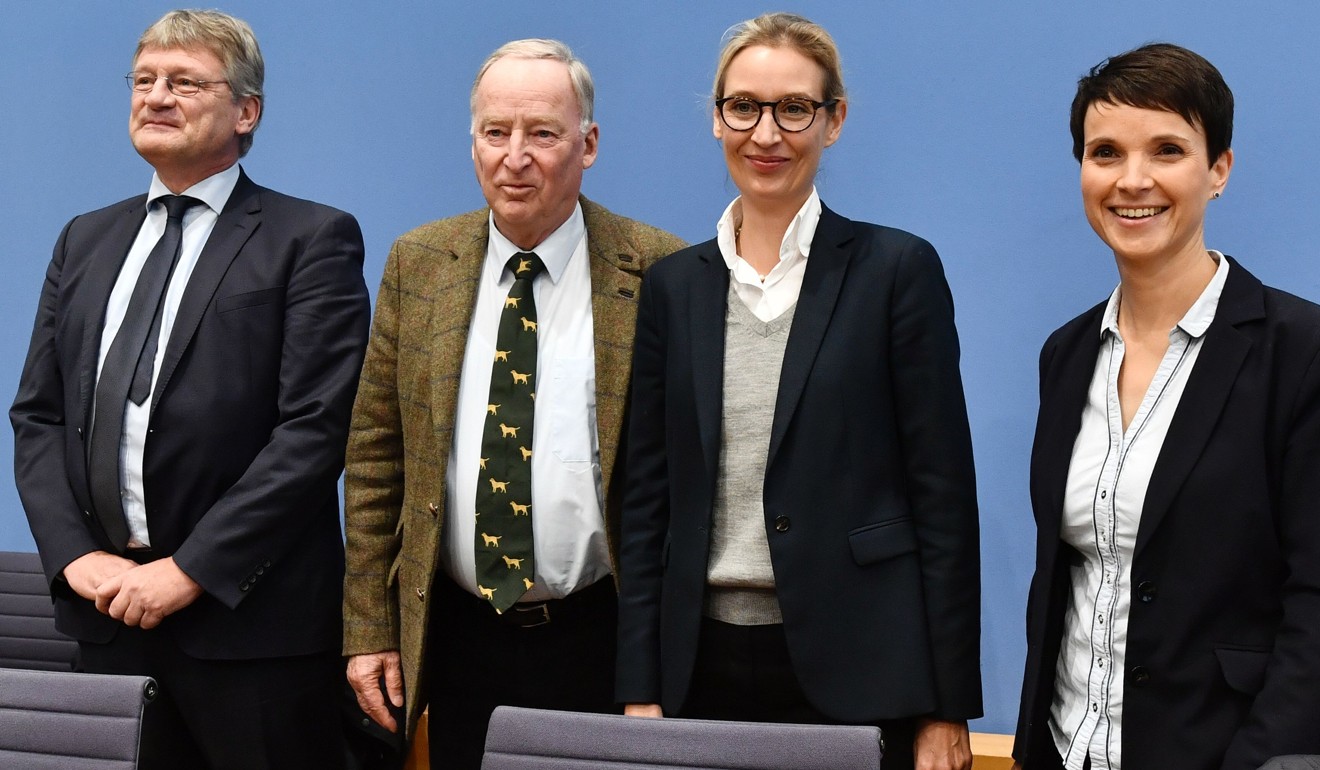
Germany’s favour with China still intact after Merkel’s election victory – even with a new coalition and far-right uprising
Europe's longest serving leader has visited the Asian nation 10 times and views the country as not only an enormous market for German goods but an important partner in an increasingly uncertain world
German Chancellor Angela Merkel was re-elected to a fourth term in the country’s general election on Sunday despite suffering heavy losses to a new far-right party that is virulently opposed to refugees and migrants.
But Europe’s longest-serving leader, who has come to rely increasingly on China as an important ally on global issues such as climate change, said she does not expect to have any difficulty forming a new government by the end of the year with two smaller coalition partners.
Merkel, 63, has already visited China 10 times during her 12 years in power and views the country as not only an enormous market for German goods but an important partner in an increasingly uncertain world, following the shock of Donald Trump’s election as US President and Britain’s exit from the European Union.
And with much of her election campaign focused on the country’s economic success, analysts expect her new coalition government to maintain its favour towards China.
“Germany’s foreign policies will remain basically the same under the new government,” said Thomas Jaeger, a political scientist at Cologne University. “They won’t change anything towards the United States. And they won’t change anything towards China because all the parties in the next government are interested in free trade and a cooperative relationship with China. There won’t be any major shifts in foreign, trade or politics.”
Merkel’s conservative Christian Democrats suffered their worst result since 1949 in Sunday’s election because of unexpectedly strong public resentment towards her 2015 decision to allow more than 1 million refugees from Syria, Iraq, Afghanistan and other troubled countries into Germany.
Based on preliminary final results released early on Monday, conservative support fell to 33 per cent, down from 41.5 per cent four years ago.

The result was four points worse than forecast in leading opinion polls.
Despite the losses, Merkel’s centre-right, which has ruled since 2005 with two different coalitions, remained the largest party. Her junior coalition partners, the Social Democrats (SPD), plunged to their worst result ever – 20.5 per cent – and announced it would not be part of another “grand coalition”.
That leaves Merkel, who is seen in China and elsewhere as the epitome of stability in Europe, with only one palatable coalition – forming a brand new three-way coalition with two smaller parties: the pro-business Free Democrats who won 10.7 per cent of the vote, and the environment-focused Greens who won 8.9 per cent.
It would be an awkward alliance untested at the national level known in Germany as a “Jamaica coalition” because the banner colours of the three parties – black, yellow and green – are the same as the Jamaican flag. But both have been out of power and are keen to regain it despite being political enemies for decades.
“The main points of contention in a ‘Jamaica coalition’ are with domestic issues,” said Jaeger, noting the FDP and Greens have long been slinging mud at each other in the pursuit of many of the same sorts of voters who prefer smaller parties.
“The only major foreign issue that we could see some change is towards Turkey, where the Greens will try to take a tougher stance. The FDP has made vague suggestions about an opening towards Russia [on relaxing sanctions] but that’s not going to get anywhere.”
The Greens’ signature issue is renewable energy and climate change but they are also vocal on human rights and peace issues, particularly on preventing weapons exports. Before coalition talks begin, it will remain unclear whether the foreign ministry post will go to the FDP or the Greens. If the FDP is handed the finance ministry portfolio for joining the coalition, it is likely the Greens would similarly be given the prize of the foreign ministry.
Merkel has already started to face heated criticism for failing to thwart the rise of the far-right Alternative for Germany (AfD) party that received 12.6 per cent of the vote – third overall and well above the 5 per cent threshold needed to win seats in parliament for the first time.

AfD’s campaign platform was based on attacking Merkel for allowing in so many refugees into the country, and her government’s failure to promptly deport asylum seekers whose applications had been rejected.
The far-right group appealed to disenchanted voters who felt they had been left empty-handed amid Germany’s strong economic performance – similar to the voter cohorts that propped up Trump’s election campaign and those who favoured Brexit.
Martin Schulz, the defeated leader of the SPD, blamed Merkel in a television debate on Sunday for the success of the AfD. He said she tried to lull voters asleep with a dull campaign that focused only on the country’s steady economic growth and low unemployment rather than take on the AfD.
Because of their Nazi past, Germans are especially frightened about the rise any party to the right of the centre-right conservatives. Even though the AfD, with 94 seats in the 709-seat parliament, will only be the second largest opposition party, angry protests about the AfD have already erupted, with people comparing the party with the Nazis.
Political analysts see the AfD’s entry into parliament, as well as the further erosion of support for the two main centrist parties, as a potential source of political tension and even instability.
“While the major power dynamics won’t change in the sense that Merkel will continue as chancellor, German politics will likely be significantly more unstable than it was in the past,” said Julius van de Laar, an international political strategist based in Berlin.

